FACULTY
The Faculty of the Doctoral School HADRIAN consists of 15 Principal Investigators (PIs) and 5 Associated Faculty Members from 4 Departments of BOKU.
- Department of Landscape, Water and Infrastructure
- Department of Ecosystem Management, Climate and Biodiversity
- Department of Natural Sciences and Sustainable Resources
- Department of Economics and Social Sciences
Principal Investigators

Markus FIEBIG is Professor at the Institute of Applied Geology in the Department of Landscape, Water and Infrastructure. The focus of his research is the relation between palaeo climate, landscape and living species. He is an expert in physical dating and geological mapping of young continental surfaces. In the frame of an International Continental Scientific Drilling Project (ICDP) which focus on glacial overdeepening below Alpine valleys and basins (DOVE) he looks after two (intended Hadrian) PhD projects which reconstruct longterm (palaeo) environments in the Eastern Alps and their Forelands. Based on Earth history he wants to develop a geoethical behavior for modern human life.
Further information
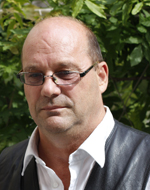
Herbert FORMAYER is Associate Professor at the Department of Ecosystem Management, Climate and Biodiversity, Institute of Meteorology and Climatology with a research focus on process oriented climate analyses and regional climate modeling. He is interested in the interactions and impact of anthropogenic climate change on human- and natural systems. The development of mitigation and adaptation measures in inter- and transdisciplinary teams is a key part of his research.
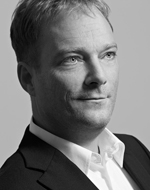
Sven FUCHS is a Senior Researcher and deputy head of the Institute of Mountain Risk Engineering. His research interests include high-mountain geomorphology, mountain hazard risk management, the study of coupled human-environment systems, and vulnerability assessment for natural hazards. His research has taken him to the mountain regions of Europe, Southeast Asia, Central Africa, and the Russian Federation. Research in his team is based on an integrative and interdisciplinary approach, and includes a plethora of methods rooted in natural and social sciences.
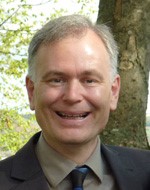
Helmut HABERSACK holds a UNESCO Chair on “Integrated River Research and Management”, coordinating the “World´s Large Rivers Initiative”, and is a Full Professor of Hydraulic Engineering and Modelling at the Department of Landscape, Water and Infrastructure. He is Head of the Inst. of Water Management, Hydrology and Hydraulic Engineering, and of the CD Laboratory for Advanced Methods in River Monitoring, Modelling and Engineering. Helmut Habersack has over 25 years of experience in river engineering, flood risk management, hydropower, navigation, sediment transport and river restoration. He is author of over 80 journal publications, 10 monographs and over 100 proceedings and organized the Conferences „On the Status and Future of the Worlds´s Large Rivers“ (held in Vienna, Manaus, New Delhi). He won the “Science2Business 2015” Award.
Further information
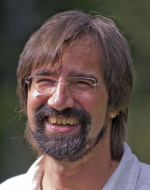
Johannes HÜBL is Full Professor of Natural Hazards and Risk Management at the Department of Landscape, Water and Infrastructure. He has a long-standing expertise in a wide range of topics in the field of mountain risk engineering, which includes documenting and monitoring of hazard processes in alpine watersheds, designing of mitigation measures and implementing integral risk management concepts. His research interest focuses on torrential hazards like torrential floods and debris flows. Developing and operating monitoring stations enables his working group as the sole research unit in Austria to measure real debris flows and their interaction with structural mitigation measures.
Further information
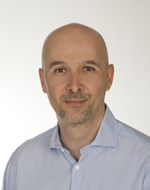
Roland KAITNA is an Associate Professor at the Department of Landscape, Water and Infrastructure. His interests cover the initiation, movement, and deposition of mountain hazard processes in the framework of an engineering risk assessment. A specific research focus is the flow behaviour of debris flows and granular avalanches and how these processes interact with structural mitigation measures. He aims for a process-based understanding of geomorphological and hydro-meteorological initiation conditions to develop a quantitative framework for the prediction of torrential flows in mountain regions under changing climate conditions.

Ulrike PRÖBSTL-HAIDER is professor for landscape development, recreation and conservation planning at the Department of Landscape, Water and Infrastructure. Her current research addresses risk in outdoor recreation, tourism planning and landscape development under conditions of climate change including mitigation and adaptation strategies. Another focus of her research is the development of environmental assessment, compensation strategies and auditing methods with a focus on landscapes in general and winter tourism destinations specifically. She teaches graduate courses in nature conservation, planning methods, outdoor recreation and nature based tourism.
Further information
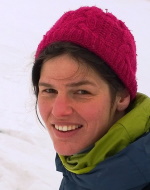
Ingrid REIWEGER is associate professor at the Department of Landscape, Water and Infrastructure. Her research focuses on snow failure, avalanche release, avalanche prediction, and avalanche mitigation, also in the context of climate change. As climate change most likely produces more persistent weather situations in the Alps, also longer periods with snowfall will happen more frequently. These long periods of snowfall pose a challenge for avalanche prediction as well as mitigation measures. In ongoing studies, we focus on the prediction of wet-snow avalanches as well as optimizing avalanche rescue strategies.
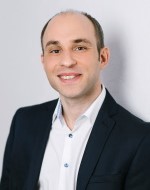
Harald RIEDER is Professor of Meteorology and Climatology at the Department of Ecosystem Management, Climate and Biodiversity. His research interests lie in climate dynamics and environmental meteorology, with focus on changes in the frequency, intensity, and severity of extreme events in a changing climate. His research combines numerical models, observations, and theoretical analyses and spans from fundamental to impact research. He serves as coordinator of the DCNA Working Group for Severe Weather Events and on the Board of the Climate Change Centre Austria.

Karsten SCHULZ is Professor for Hydrology and Integrated Water Management at the Department of Landscape, Water and Infrastructure. His research expertise is in the scale-dependent monitoring and modelling of water, energy and solute fluxes in the subsurface and in the soil-plant-atmosphere system. The development and application of methods to derive hydrometeorological as well as soil and land surface parameters using a wide range of remote sensing techniques are important components of his research activities. The development and application of uncertainty estimation and data assimilation techniques are an other major focus.
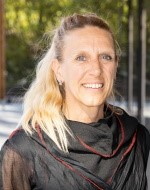
Rosemarie STANGL is Full Professor and Head of the Institute of Soil Bioengineering and Landscape Construction at BOKU Vienna (University of Natural Resources and Life Sciences). Her academic work centers on the design and performance of nature-based solutions and green infrastructure. Detailed technical planning and design for using plants and plant based and natural material for construction and engineering purposes have been advanced as core competences. Related research focuses the use of resource saving techniques and renewable resources and their combination with traditional and novel vegetation technologies and soil bioengineering techniques. In her previous positions, Prof. Stangl focused on resilience related topics and was centrally involved in preparing the national FTI-Bioeconomy Strategy.
Further information

Christine STUMPP is Professor of Rural Water Management and Soil Physics at the Institute of Hydraulics and Rural Water Management. Her research focuses on the understanding of climate and land use impact on water and matter fluxes in soils and groundwater with the goal to improve the sustainability of water use and manage water resources to maintain ecosystem functioning. She has a main expertise in using tracer methods, particularly water stable isotopes, to identify sources of water and to quantify fluxes and transport processes. She develops and uses experimental and modeling approaches for understanding coupled interactions between hydrological, biogeochemical and ecological processes.
Further information
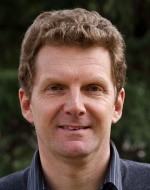
Harald VACIK is Associate Professor at the Institute of Silviculture at the Department of Ecosystem Management, Climate and Biodiversity and his research is focusing on the evaluation of natural resource management in the context of sustainability and biodiversity. He is applying criteria and indicators along with multi-criteria decision making techniques for evaluating forest management. The development of several spatial decision support systems helps decision makers in balancing multiple interests and implementing scientifically based silvicultural concepts in Europe, Asia and Africa. He is founder of the Austrian Forest Fire Research Initiative (AFFRI) and the Sub-Regional Euro-Alpine Wildland Fire Network of Global Fire Monitoring Center (GFMC).
Further information
Sonja VOSPERNIK is Associate Professor of Forest Growth at the Department of Ecosystem Management, Climate and Biodiversity. Her empirical research focuses on dendrometer, tree-ring and forest inventory studies to analyse growth in response to climate and inter and intra-specific tree competition, encompassing many different temperate tree species at both xeric and high elevation sites. Her scientific interest also includes forest growth modelling with long-term predictions of different forest management and climate scenarios. In scenario analysis, also the commercial assortment of trees and wood quality can be calculated. She teaches forest growth and forest mensuration at an undergraduate and graduate level.
Further information
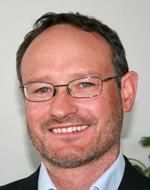
Christian ZANGERL is a Full Professor for Sustainable Georesources and Applied Geology at the Department of Landscape, Water and Infrastructure and Head of the Institute of Applied Geology. His research group Applied Geology comprises research activities in the fields of georisks (i.e. landslides), sustainable georesources (i.e. geothermal energy and hydrogeology) and engineering geology (e.g. rock mass characterisation, tunnelling). A particular focus of the research group is on landslides of different types and in different environments, comprising fundamental research on the formation, deformation and failure processes, innovative investigation and monitoring methods, as well as advanced numerical modelling techniques. His teaching activities include courses in the field of landslides, fundamentals of geology, engineering/applied geology, rock mechanics and hydrogeology.
Further information
Associated Faculty Members
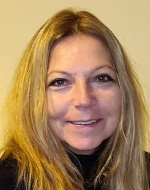
Tatjana FISCHER is Senior Scientist at the Department of Landscape, Water and Infrastructure. The focus of her research is spatial research and spatial planning, aiming to explore the interrelations between demographic dynamics and their consequences for spatial development and maintenance of quality of life in different spatial archetypes. Particular attention is paid to multilocal lifestyles, demographic ageing and social infrastructure planning. Recent research is about the consideration of demographic dynamics in natural risk management and the intersection of spatial planning and public health.
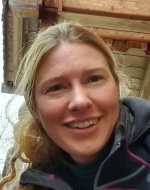
Franziska KOCH is a senior scientist at the Department of Landscape, Water and Infrastructure, Institute for Hydrology and Water Management. Her research focus is on Alpine Hydrology, in which she develops, applies and combines in situ measurements, modelling approaches and remote sensing methods to get a better understanding of snow-hydrological processes and seasonal and spatial patterns. She aims to improve snow monitoring and runoff generation in high-alpine regions, which is relevant for various applications, such as hydropower generation, flood forecasting or ski tourism. Besides, she is an expert in deriving snow cover properties with Global Navigation Satellite System (GNSS) signals.
Further information
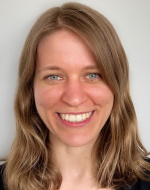
Ursula LAA is a University Assistant in the Institute of Statistics, specializing in data science. Following her PhD in theoretical physics, she worked as a research fellow at Monash University, Melbourne, before joining BOKU. She is an expert in statistical computing using the R programming language, and focuses on exploratory data analysis and the visualization of multivariate data, with applications in various scientific fields. She likes to come up with new ways of extracting information from large datasets and new graphics for better interpretation. She is teaching elementary and advanced statistics courses.
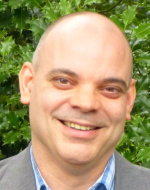
Ralf NORDBECK is a senior scientist at the Institute of Forest, Environmental and Natural Resource Policy and holds a PhD in political science. His research focus is on cross-national and comparative research in the fields of environmental policy, risk governance, and politics of natural disasters. This includes studies on adaptation and mitigation measures, designing policy instruments, intersectoral policy coordination and integration, cooperative arrangements, stakeholder participation, and the science-policy-interface.
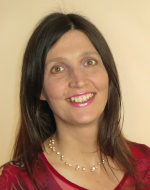
Christine SINDELAR is Senior Scientist at the Institute of Hydraulic Engineering and River Research and head of the Hydraulics Laboratory in Muthgasse 18. Her focus is on experimental river research and fluid mechanics. In the Laboratory scaled models of river reaches are built to investigate e.g. hydraulic structures, river widenings, hydropower plants and sediment transport in rivers. This applied-oriented research is complemented with basic research on hydrodynamics and sediment transport. Based on cutting-edge non-intrusive measurement techniques it is possible to detect coherent structures in the flow which are drivers for sediment entrainment and ecological processes.
Further information
